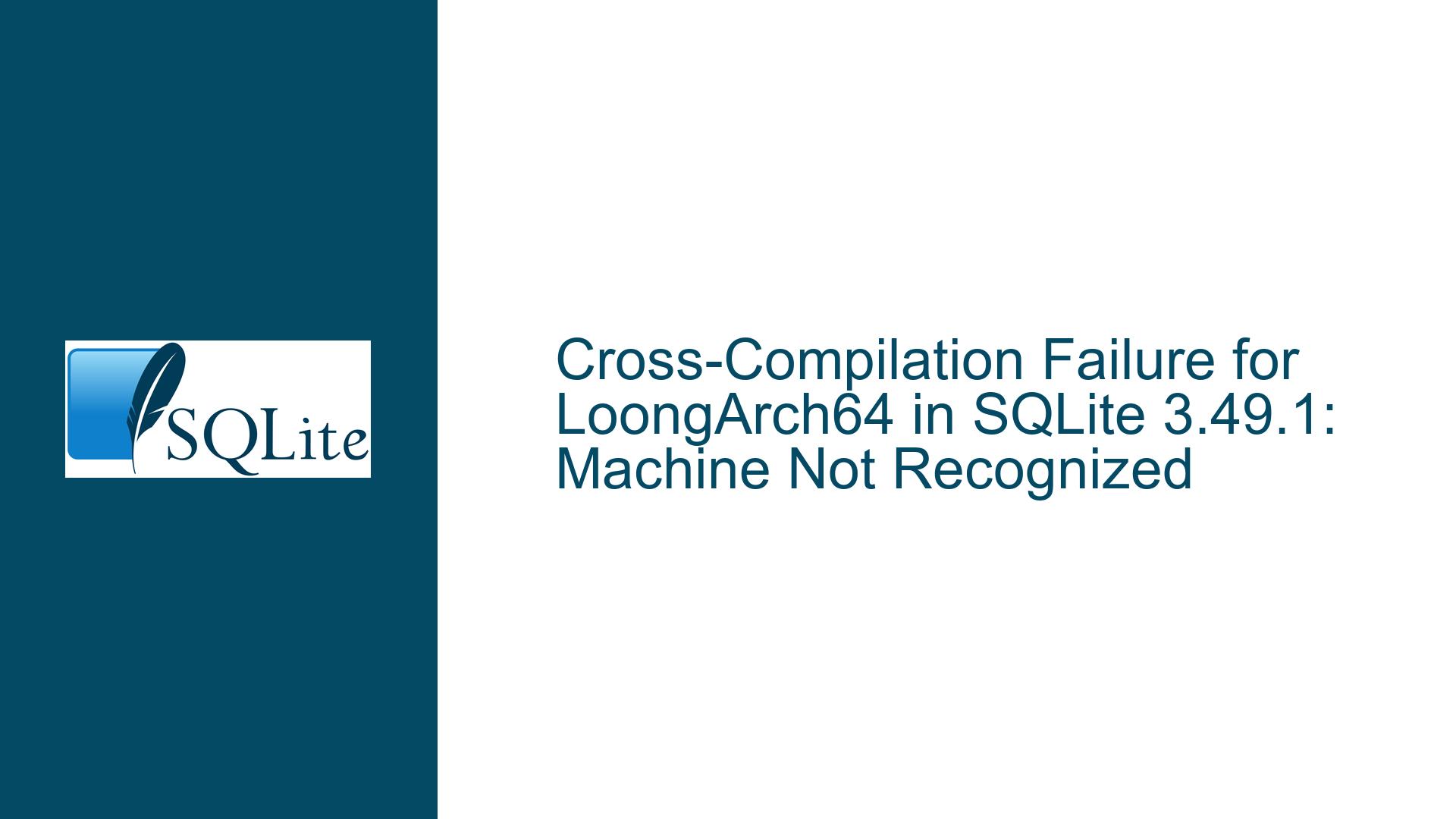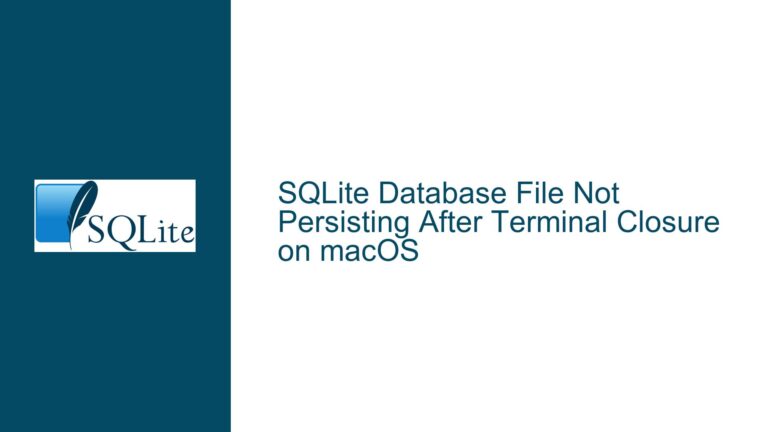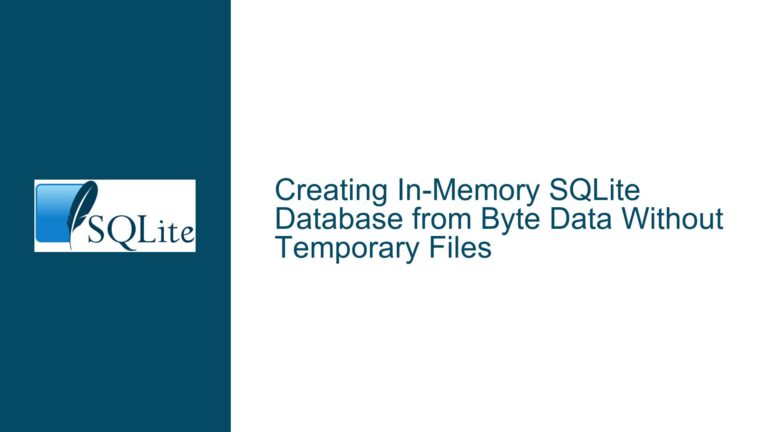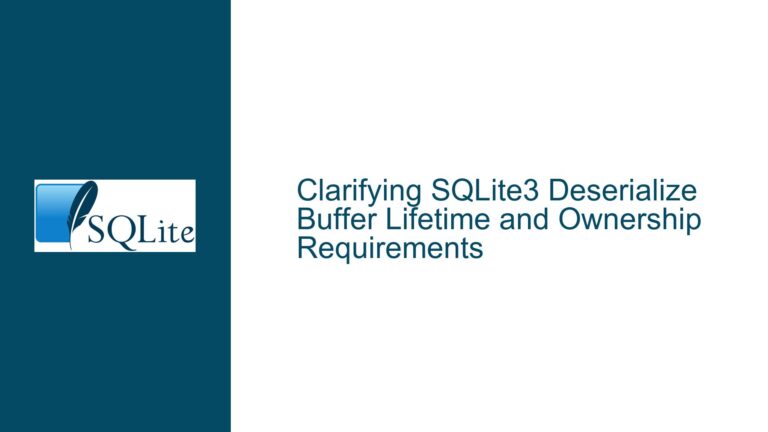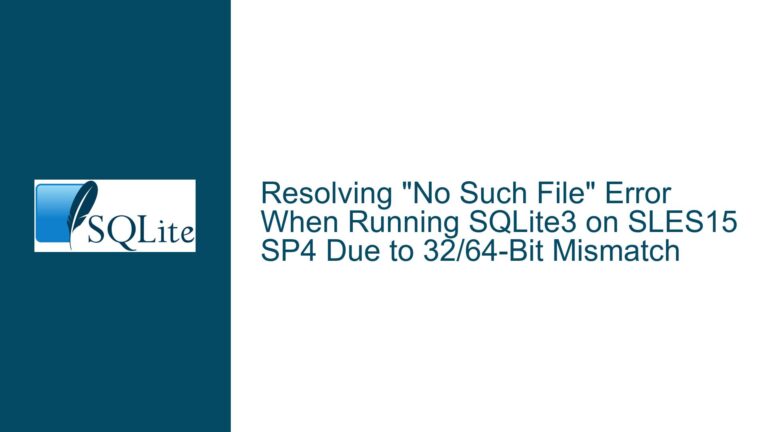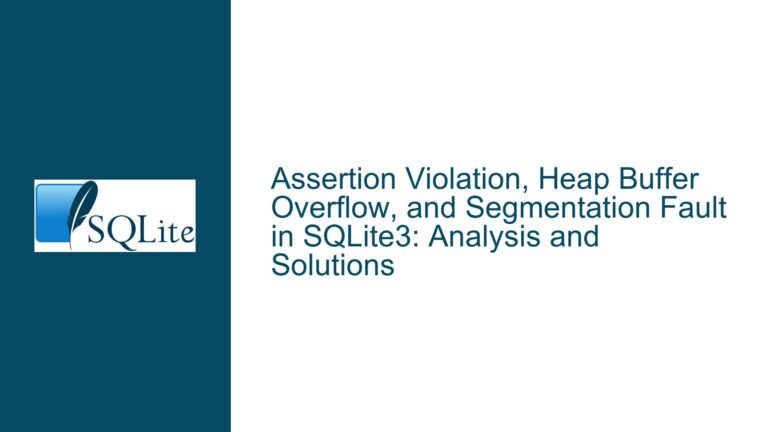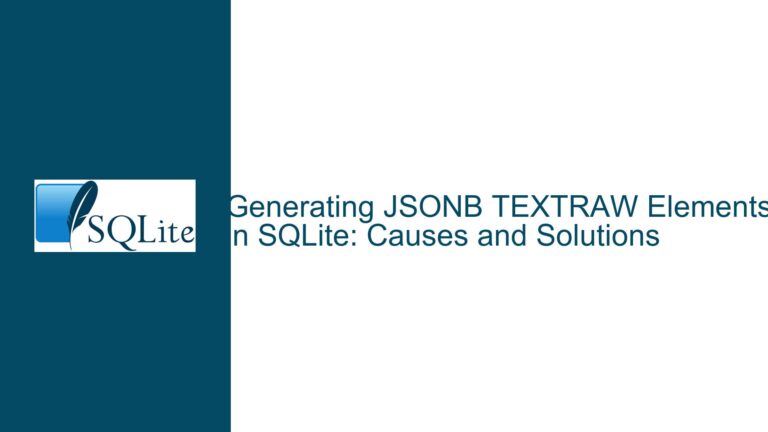Cross-Compilation Failure for LoongArch64 in SQLite 3.49.1: Machine Not Recognized
Cross-Compilation Failure Due to Unrecognized LoongArch64 Machine Type
The core issue revolves around the failure to cross-compile SQLite for the LoongArch64 architecture starting from version 3.49.1. The error message indicates that the machine type loongarch64-unknown is not recognized during the configuration phase. This issue is particularly perplexing because the same cross-compilation process worked flawlessly in SQLite version 3.49.0. The error manifests during the execution of the configure script, specifically when it attempts to validate the host system type using the config.sub script. The failure suggests that the build system is unable to map the provided host system type (loongarch64-unknown-linux-musl) to a recognized machine type, which is a critical step in the cross-compilation process.
The config.sub script is a part of the GNU Autotools suite, which is responsible for validating and canonicalizing system types. It takes a system type string (e.g., loongarch64-unknown-linux-musl) and converts it into a standardized format that the build system can understand. The error message Invalid configuration 'loongarch64-unknown-linux-musl': machine 'loongarch64-unknown' not recognized indicates that the config.sub script lacks the necessary definitions to recognize the LoongArch64 architecture. This is a significant issue because the cross-compilation process relies on the ability to correctly identify and configure the target architecture.
The fact that this issue did not occur in SQLite 3.49.0 suggests that there may have been changes in the build system or the underlying Autotools configuration files between versions 3.49.0 and 3.49.1. However, as noted in the discussion, there were no changes to the base Autotools files between these versions. This raises the possibility that the issue is related to the environment or toolchain being used for cross-compilation rather than changes in the SQLite source code itself.
Potential Causes of the LoongArch64 Cross-Compilation Failure
The failure to recognize the LoongArch64 machine type during cross-compilation can be attributed to several potential causes. One of the primary suspects is the config.sub script, which is responsible for validating and canonicalizing system types. If this script does not include the necessary definitions for the LoongArch64 architecture, it will fail to recognize the machine type, leading to the observed error. This could be due to an outdated version of the config.sub script or a missing update to include support for LoongArch64.
Another potential cause is the cross-compilation toolchain itself. The toolchain used for cross-compiling to LoongArch64 must be properly configured to support the target architecture. If the toolchain is missing critical components or is not correctly set up, it could lead to issues during the configuration phase. For example, the toolchain might lack the necessary libraries or headers for the LoongArch64 architecture, causing the configure script to fail.
The environment in which the cross-compilation is being performed could also play a role. Differences in the build environment between SQLite 3.49.0 and 3.49.1 could lead to inconsistencies in how the configure script is executed. This could include differences in the versions of the compiler, linker, or other build tools, as well as differences in the environment variables set during the build process.
Finally, there could be an issue with the SQLite build system itself. While the discussion notes that there were no changes to the base Autotools files between versions 3.49.0 and 3.49.1, there could have been changes in other parts of the build system that indirectly affect the cross-compilation process. For example, changes to the way the build system handles cross-compilation flags or the way it interacts with the toolchain could lead to issues when targeting a less common architecture like LoongArch64.
Resolving the LoongArch64 Cross-Compilation Failure
To resolve the issue of the unrecognized LoongArch64 machine type during cross-compilation, several steps can be taken. The first step is to ensure that the config.sub script used by the SQLite build system includes the necessary definitions for the LoongArch64 architecture. This can be done by updating the config.sub script to a version that includes support for LoongArch64. The config.sub script is part of the GNU Autotools suite, and updates to this script are periodically released to include support for new architectures. If an updated version of the script is available, it should be downloaded and replaced in the SQLite source tree.
If updating the config.sub script does not resolve the issue, the next step is to verify the cross-compilation toolchain. The toolchain must be properly configured to support the LoongArch64 architecture, and all necessary libraries and headers must be present. This includes ensuring that the compiler, linker, and other tools are correctly set up to target LoongArch64. If the toolchain is missing critical components, it may need to be rebuilt or reconfigured.
The build environment should also be carefully examined. Differences in the environment between SQLite 3.49.0 and 3.49.1 could lead to inconsistencies in the build process. This includes checking the versions of the compiler, linker, and other build tools, as well as the environment variables set during the build process. If differences are found, they should be addressed to ensure a consistent build environment.
If the issue persists, it may be necessary to modify the SQLite build system itself. This could involve making changes to the way the build system handles cross-compilation flags or the way it interacts with the toolchain. For example, additional flags may need to be passed to the configure script to ensure that it correctly identifies the target architecture. This could include specifying the target architecture explicitly or providing additional information about the toolchain being used.
In some cases, it may be necessary to patch the SQLite source code to address issues specific to the LoongArch64 architecture. This could involve modifying the build system or the source code itself to ensure compatibility with the target architecture. If this is the case, the patches should be carefully tested to ensure that they do not introduce new issues.
Finally, if all else fails, it may be necessary to seek assistance from the SQLite development community or the maintainers of the LoongArch64 toolchain. They may be able to provide additional insights or guidance on how to resolve the issue. This could include providing patches, updates, or other resources to help address the problem.
In conclusion, the failure to cross-compile SQLite for the LoongArch64 architecture starting from version 3.49.1 is a complex issue that can be attributed to several potential causes. By carefully examining the config.sub script, the cross-compilation toolchain, the build environment, and the SQLite build system itself, it is possible to identify and resolve the issue. With the right approach, it should be possible to successfully cross-compile SQLite for the LoongArch64 architecture, ensuring compatibility with this emerging platform.
